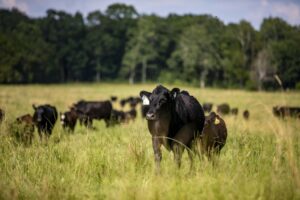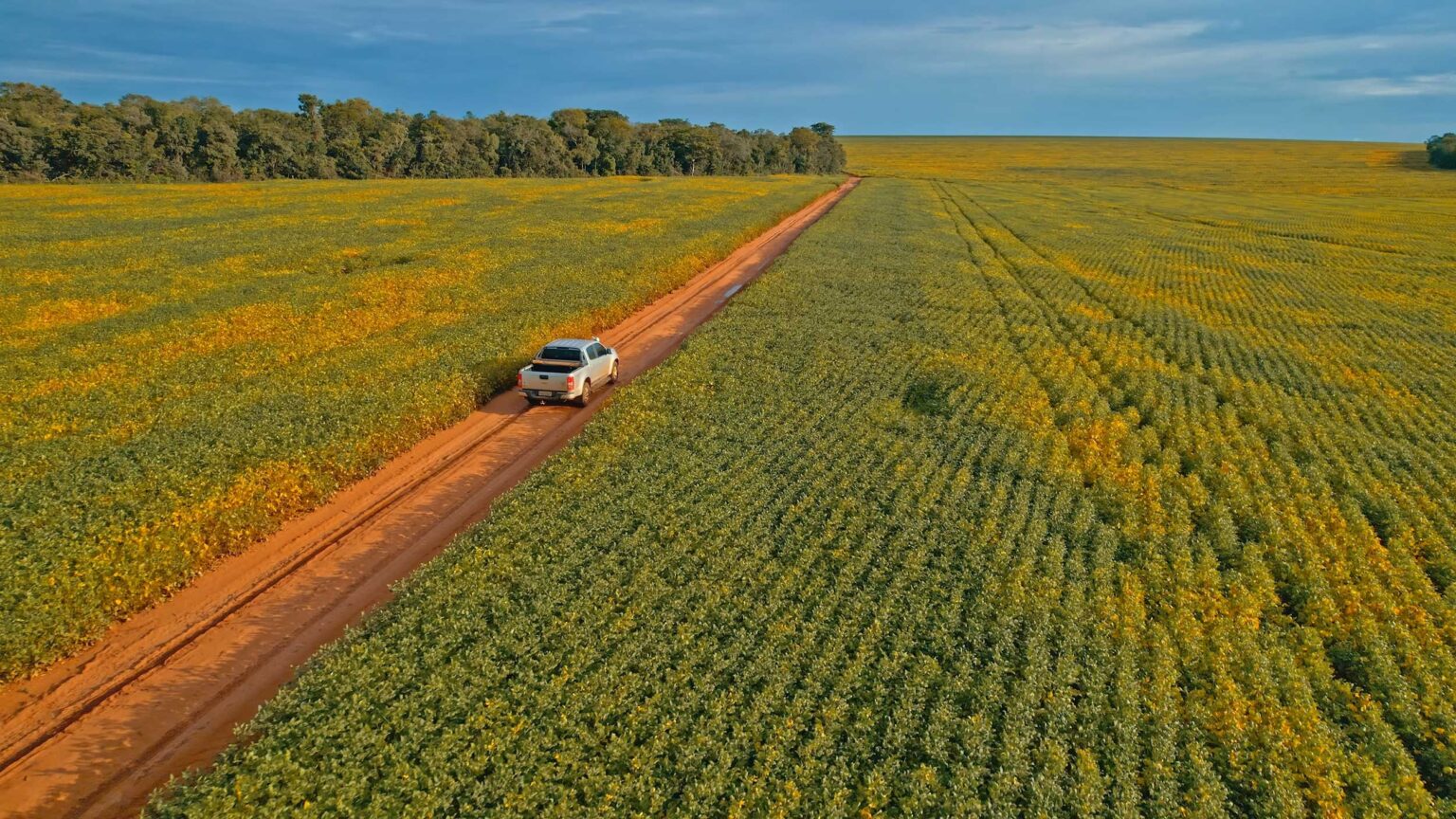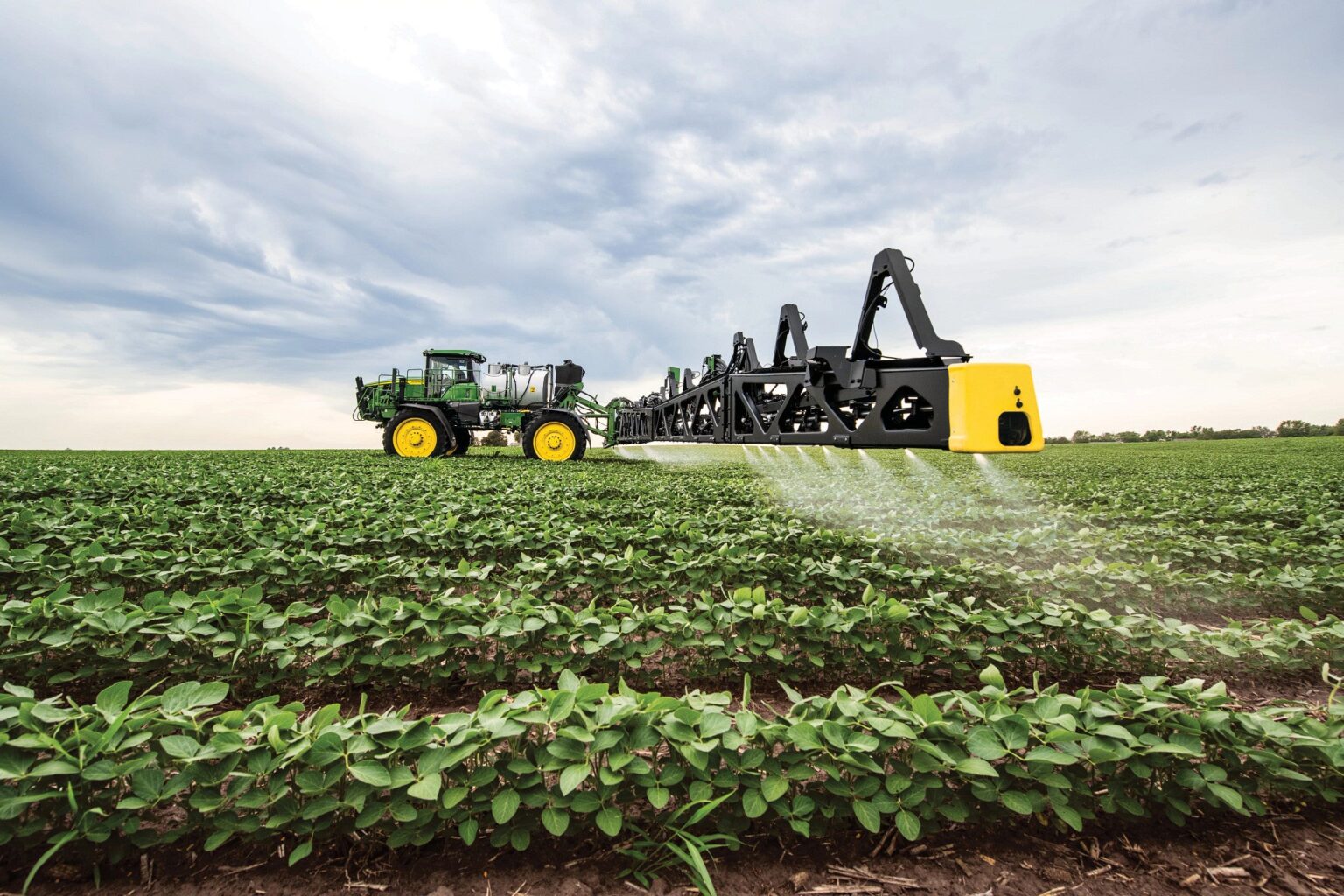Subscribe to Updates
Get the latest agriculture news and updates directly to your inbox.
Author: staff
Geared toward 4- to 9-year-olds, Our Christmas Tree Farm offers a cozy peek behind the scenes at what it takes to grow the centerpiece of many American families’ Christmas traditions: a real Christmas tree. Told through 7-year-old Kate’s narration, the story follows a bustling tree farm where the whole family pitches in, including Daisy the dog. Customers arrive ready to choose a tree and enjoy classic farm fun like popcorn, sledding, and other seasonal activities, while Kate’s family stays busy keeping everything running — popping corn, setting up sleds, and baling trees — alongside the careful work that makes the farm…
President Donald Trump is expected to unveil a $12 billion farm aid package this afternoon at the White House, aimed at producers facing low commodity prices and market disruption tied to the administration’s tariff policies and ongoing trade tensions — especially with China. According to Reuters, the plan, described by administration officials speaking ahead of the announcement, would deliver the bulk of the funding as one-time payments to crop farmers through a newly designed Farmer Bridge Assistance program, with the remainder set aside for commodities not covered under that framework. Reporting indicates the package is designed to reach a broad…
A little after 9 a.m. CT, March corn was up a penny at $4.45¾ per bushel. January soybeans were down 9¢ at $10.96¼ per bushel. March CBOT wheat was up 2¢ at $5.37¾ per bushel. March KC wheat was down 2¼¢ at $5.29 per bushel. March Minneapolis wheat was up 3¼¢ at $5.76¼. This morning, USDA announced China is buying 132,000 metric tons of soybeans for the 2025/2026 marketing year. Tomorrow USDA is expected to release the December World Agricultural Supply and Demand Estimates (WASDE) and Crop Production reports. The Federal Reserve’s Federal Open Market Committee (FOMC) is meeting Tuesday…
Applications are now open for the 2026-27 National Teacher Ambassadors for FFA, a program designed to give agriculture educators advanced training, hands-on experience with National FFA resources, and a leadership role that extends beyond their own classroom through outreach and support in their state. At its core, the program is built around working teachers helping other working teachers. The FFA’s latest report describes the ambassadors as a group of agriculture educators currently in the classroom who are trained to answer questions and provide training related to the various educational resources and experiences the National FFA Organization offers. Applications for the…
A farm aid package is expected to be announced next week for farmers suffering from export losses and low commodity prices. Agri-Pulse Newsmakers sat down with Deputy Agriculture Secretary Stephen Vaden to discuss the package, which he says “a wide variety of commodity crops” will be eligible for.In this extended year-in-review interview, the Trump administration’s efforts to advance many agriculture priorities this year — tackling food inflation, advancing trade deals, and consolidation in the meat sector — were discussed. Vaden, who is leading the USDA reorganization, also shared a timeline for when USDA staff will be relocated to five regional hubs across…
By Michael Langemeier A previous article discussed crop machinery cost and investment (Langemeier, 2025). Crop machinery cost is computed by summing economic depreciation, interest, property taxes, insurance, repairs, fuel and lubricants, and custom hire and rental expense. This article examines crop machinery costs for small and large farms and for net return categories. Trends in corn and soybean crop machinery costs are also examined. A forthcoming article will examine crop machinery investment and net investment by farm size category. Crop Machinery Cost Table 1 presents machinery cost per acre for farms with less than 250 acres or more than 1000 acres of corn or…
By Ryan Hanrahan Bloomberg’s Hallie Gu and Chris Anstey reported that “China is on pace to meet its pledge to buy 12 million tons of US soybeans by the end of February, US Treasury Secretary Scott Bessent said on Wednesday, appearing to extend an earlier deadline for Beijing’s purchases.” “The White House said last month that China had agreed to buy the shipments ‘during the last two months of 2025,’” Gu and Anstey reported. “I will say that China is on track to keep every part of the deal, every part of the deal,’ Bessent said during an interview at a…
By Cami Koons Pheasants Forever and Quail Forever have expanded Iowa public lands access with two parcel acquisitions in Fremont County. The 350 acres abut existing public lands owned by state and federal agencies and will be enrolled in the Iowa Habitat and Access Program to allow public hunting access while employing habitat management practices to improve the prairie. The Iowa Habitat and Access Program is managed by wildlife biologists at Iowa Department of Natural Resources who help to improve the quality of wildlife habitat on a property. The first parcel is a 174-acre addition to the Copeland Bend Wildlife…
The December USDA World Agricultural Supply and Demand Estimates (WASDE) report is scheduled for release on Tuesday, Dec. 9. Historically, there are no production adjustments in this report, only demand adjustments. Here is what farmers need to know about the U.S. corn, soybean, and wheat markets, and what Grain Market Insider will be looking for in the updated balance sheets. The November WASDE had corn ending stocks increasing from 2.11 billion bushels in September to 2.154 billion, soybean ending stocks decreasing from 300 million bushels to 290 million, and wheat ending stocks increasing from 844 million bushels to 901 million.…
I wish I could remember the last time I was able to scroll through my social media feeds and not roll my eyes and sigh at some ridiculous anti-science statement. My blood pressure starts to rise each time I read a scientifically unsound, excessively absurd opinion about farming, ranching, or our food supply. And unfortunately, too often, it’s not from an animal-rights extremist. The calls are coming from inside the house, y’all. Recently, a close friend — who is a fabulous writer — was criticized for an article that featured unbiased producer sources and was backed by credible data on…









:max_bytes(150000):strip_icc()/Markets-7-Corn-up-soybeans-down-8-0a75579f8d7040eebf2a30c978a1c63c.jpeg)

:max_bytes(150000):strip_icc()/54778662706_5ab262825b_o-68d3addad1aa4d36911c1d80274538a9.jpg)
:max_bytes(150000):strip_icc()/Lee-Lubbers-washing-equipment-in-the-farm-yard-IMG_2130-333a5a401e3048a8bcb1727d316d6ee0.jpg)
:max_bytes(150000):strip_icc()/8293232288_8da55cc72e_o-b324a9331b0a48b487dd867154d53c50.jpg)
:max_bytes(150000):strip_icc()/Photo1-c808ce3b5824430aa78bad497365a3a5.jpg)
:max_bytes(150000):strip_icc()/100126367_farm_grain_bin_silo-793640a5a77244ed8dc923ffaa2d5811.jpg)
